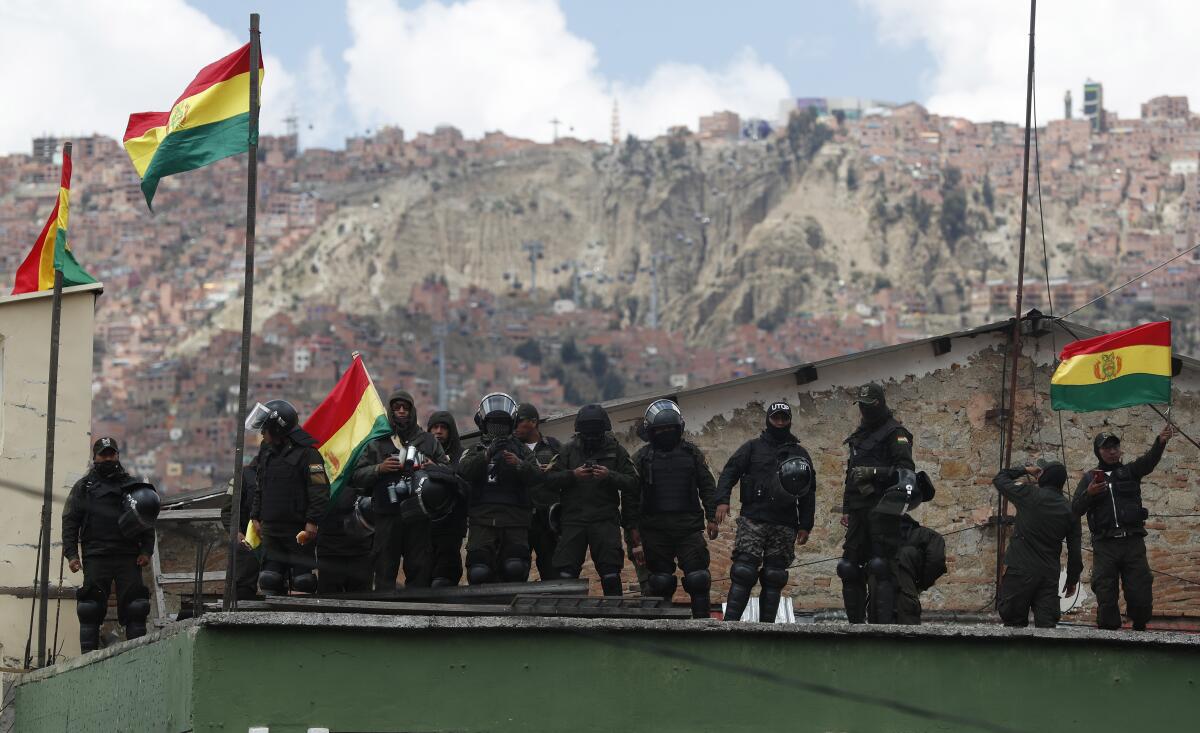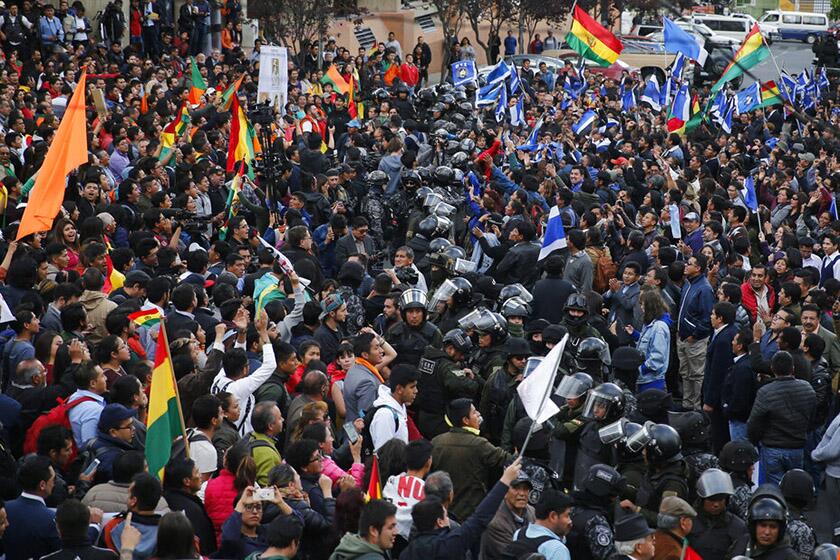Police abandon posts outside Bolivia’s presidential palace

- Share via
LA PAZ, Bolivia — Police guards outside Bolivia’s presidential palace abandoned their posts Saturday, increasing pressure on President Evo Morales as he seeks to curb nationwide unrest after a disputed election.
Growing dissension in police ranks posed a new threat to Morales, who claimed victory after the Oct. 20 vote but has since faced protests in which three people have been killed and hundreds injured.
Morales faces “the most complicated moment” in his 14 years in power and the situation could deteriorate, said Jorge Dulon, a political analyst at the Catholic University of Bolivia in La Paz.
The Organization of American States is conducting an audit of the election count. Findings are expected Monday or Tuesday. The opposition, which has alleged vote-rigging, says it will not accept the results because it was not consulted about the audit plan.
Police units in some cities started protesting Friday, marching in the streets in uniform as anti-government protesters cheered them from the sidewalks.
Bolivia’s electoral authority announced Monday night that President Evo Morales was close to avoiding a runoff in his reelection bid, touching off protests by the leader’s opponents.
Defense Minister Javier Zabaleta initially played down the police protests, saying a “police mutiny occurred in a few regions.”
Gen. Williams Kaliman, the military chief, said Saturday that the military had no plans to intervene.
“We’ll never confront the people among whom we live. We guarantee peaceful coexistence,” Kaliman said. “This is a political problem and it should be resolved within that realm.”
A list of demands from dissident police officers included better working conditions, the resignation of their commander and guarantees that they won’t be used as a political “instrument of any government.”
The spectacle of police leaving their positions outside the presidential palace was an ominous development for Morales.
The president was not in the palace at the time and officials there were evacuated, leaving only a military presidential guard. Protesters moved peacefully to the doors of the compound, but later left the area.
Morales later gave a news conference at a military airport in which he appealed to Bolivia’s political factions to hold talks. He said the four parties that received the most votes in the nine-candidate election should sit down with “an open agenda to pacify Bolivia.”
Carlos Mesa, the main opposition leader and a former president, promptly rejected the suggestion.
“I have nothing to negotiate with Evo Morales, who has lost all grip on reality,” Mesa said.
While appealing for dialogue, Morales has also accused his opponents of trying to overthrow Bolivia’s rightful government.
The European Union issued a statement Saturday calling for demonstrators to remain peaceful, saying a solution “can be achieved through peaceful negotiations.”
In the city of Santa Cruz, a stronghold for anti-Morales sentiment, hundreds of opposition supporters marched along with police mutineers.
“We do not want to be indifferent. The police are joining their people,” one officer said.
After the Oct. 20 vote, the country’s first indigenous president declared himself the outright winner even before official results indicated he obtained just enough support to avoid a runoff with Mesa.
But a 24-hour lapse in releasing vote results raised suspicions among opposition supporters that there had been fraud.
Morales had previously refused to accept the results of a referendum upholding term limits for the president.
The country’s constitutional court later ruled that term limits violated his right to run for office, and the electoral court accepted his candidacy for a fourth term.
More to Read
Sign up for Essential California
The most important California stories and recommendations in your inbox every morning.
You may occasionally receive promotional content from the Los Angeles Times.














